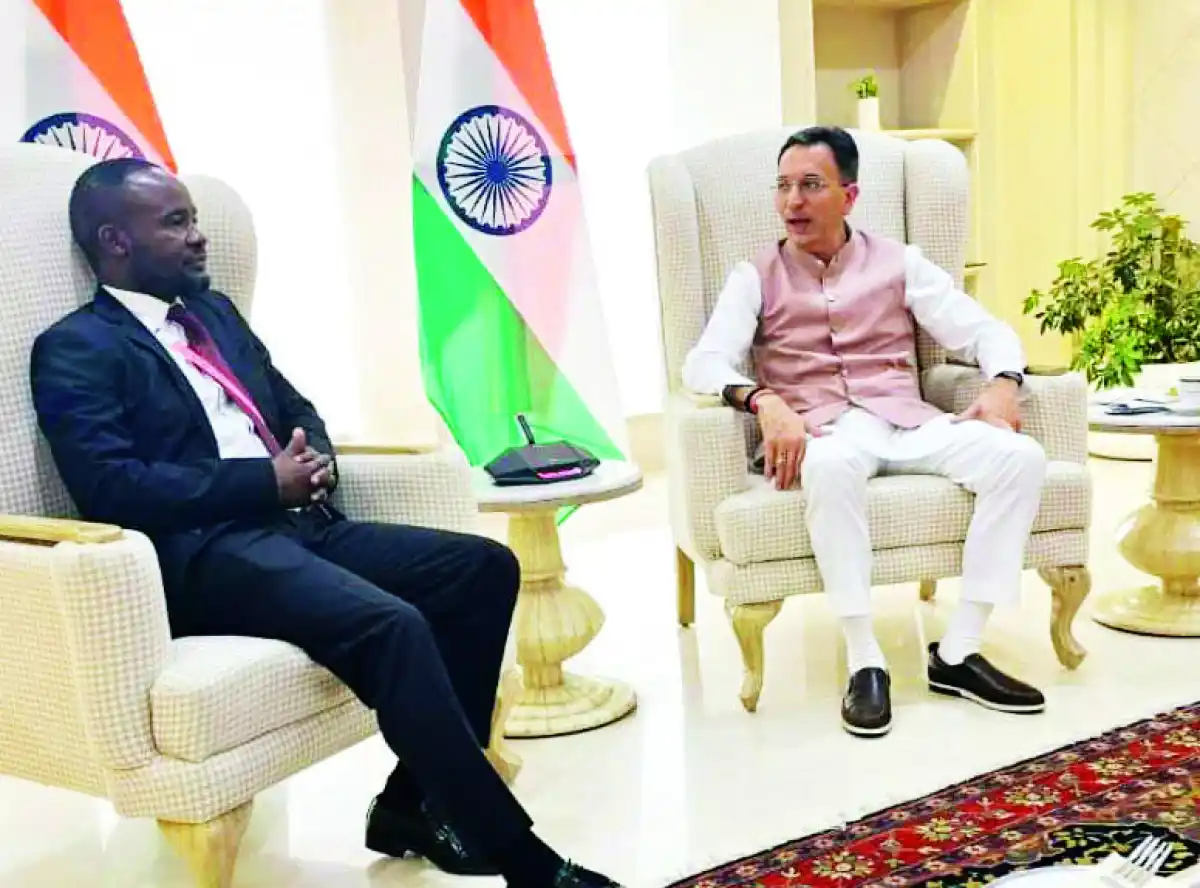
Malawi has engaged India on existing high tariffs, which is among major barriers to competitiveness of agricultural exports.
Minister of Trade and Industry Sosten Gwengwe met Indian Minister of State, Shir Kirti Vardan Singh, on the sidelines of the India Africa Business Conclave to discuss remedies.
Among other things, Gwengwe highlighted the need for a review of tariff structures for local exports to maximise earnings.
Gwengwe said the existing high tariffs have been a major barrier to the competitiveness of Malawi’s agricultural exports on the Indian market.
He called for improvements in the preferential tariff schemes.
“Another challenge included insufficient production of the existing value chains. This is an area we want investors to come in with mega production interventions in order to improve commodity production as well as productivity to remain competitive,” he said.
According to Gwengwe, Lilongwe and New Delhi should work towards establishing predictable trading arrangements with minimal barriers and obstacles.
He said India remains one of Malawi’s major export destinations for agricultural commodities.
They include pigeon peas, soybean, mangoes, macadamia nuts, chillies, ground nuts and pulses.
“India has also been a notable source of foreign direct investment for Malawi. India has a very significant section of the Malawi industrial base in agriculture, trading, textiles, tourism, health and ICT,” Gwengwe said.
The talks were aimed at finding common ground and negotiating reduced tariffs or other trade facilitation measures that would enable Malawian exporters to access the Indian market more effectively.
In his address, as shared by the Ministry of Trade, Vardan Singh acknowledged the concerns raised and expressed willingness to work collaboratively towards a solution that benefits both countries.
He underscored India’s interest in fostering closer economic partnerships with Malawi and other African nations.
The meeting marks a step forward in addressing trade barriers and could potentially opening up new opportunities for Malawian agricultural products in the Indian market








0 Comments